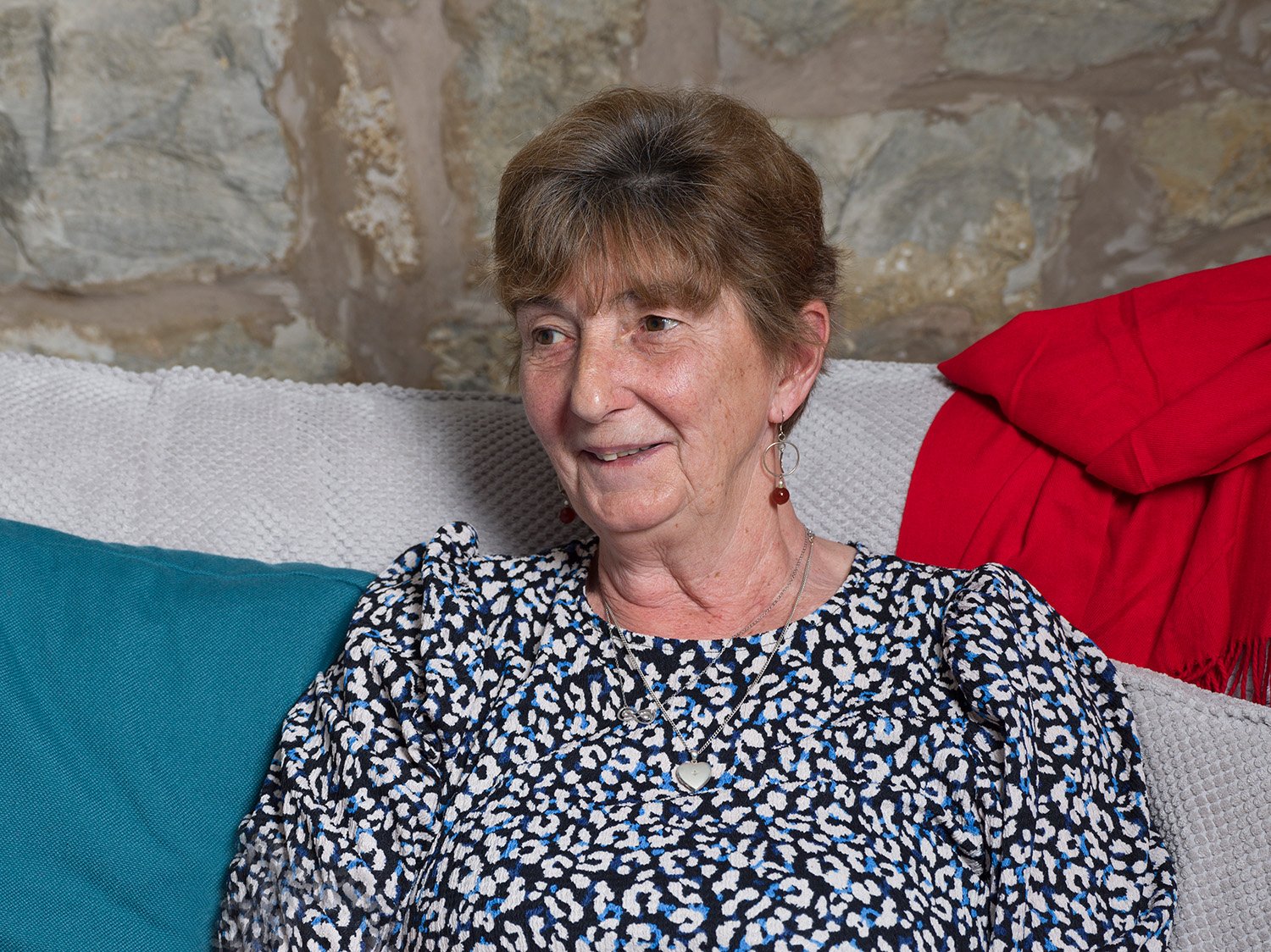What matters most?
Sue
Sue is 66 years old and lives in North Wales with her husband Paul. Recently, she was diagnosed with terminal pancreatic cancer, after an initial suspicion by the medical staff of being possible ovarian Cancer.
It's been difficult for them, their children and their grandchildren to come to terms with. “I got the diagnosis on the 21st of March at Wrexham Hospital. I went to see the gynaecologist at the Shooting Star unit in Wrexham, only to be told it probably wasn't ovarian cancer. After an examination, we discussed my scan report which stated that it could possibly be something else. I was then referred to gastroenterology and I've been in their care since. They've been quite good, I must admit.”
After her diagnosis, which is very recent, Sue is now waiting for follow-up appointments and results to help plan for the future and what options will be available for her. “We're just waiting now for biopsy results to see what form of cancer it is. After that, it will be oncology to see if there is any treatment they can offer that would help prolong my life, or whether it's going to be too invasive, given the short time I've got and whether I accept chemotherapy. That’s the next big decision.” This is a decision that Sue will make along with her husband Paul.
Sue says that the cancer didn’t come as a huge shock as she knew her body and knew something was seriously wrong. “When they said that it had possibly spread to my liver. I thought ‘That’s not good.’ But my husband, ever the optimist said, oh, we'll be fine. So, I think it was more of a shock to him than it was to me. I just asked outright, ‘how long have I got?’ They couldn’t tell me specifically but he was saying months rather than years. The doctor was suggesting possibly the latter end of months. I suppose it is difficult because everybody is different, but it does help if you've got a timescale to work by. I think once I've got a date or I feel I'm deteriorating more quickly then I think that's probably when I will hit the panic button.”
Sue has her husband and her two children and grandchildren that she worries about. Telling them was hard “Still, I'm really just trying to get on with it and support the rest of the family as best I can. Really, it's hard work because you've got to be there for everybody else, you know I'm okay. It's fine. I think it's the time scale that suddenly the family can't cope with, they still need mum.”
Her husband Paul had bowel cancer previously and survived and the family had lived through it. They were open and told them about Sue’s consultation prior to the appointment.
“I think we all just assumed it will be all right, but when I told them it was terminal, and it might only be months, that was hard. It was hard for the children and for Paul as well. We've been together 50 years it's a long time. We've got an 18-year-old grandson and obviously, he could tell his dad was upset so he's been digging for answers, so he's aware now. The youngest grandchild is four. How do I tell her I have no idea? But there are plenty of books and things like that for children now which didn't used to be. The hardest part to be honest, was telling my dad, he's over in Yorkshire. He doesn't deal with death, he's lost a lot of his friends and having to tell him that was hard.”











